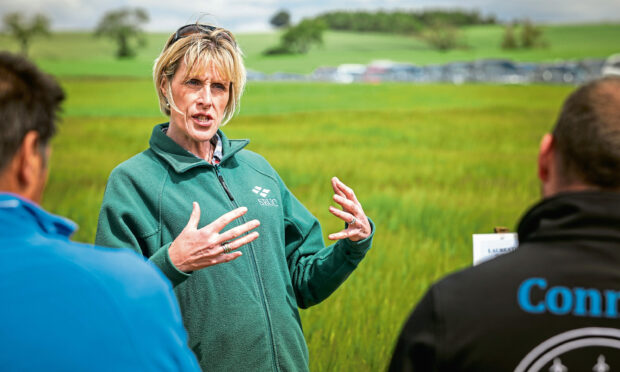Arable farmers have been told to stop wasting time being defensive about the inevitable loss of agrochemicals and instead accept they will have to adopt new crop protection techniques.
The advice came from Professor Fiona Burnett of Scotland’s Rural College (SRUC), one of the key speakers at the inaugural Arable Scotland event at the James Hutton Institute’s (JHI) Balruddery Farm, near Dundee.
Prof Burnett said it was time the farming industry accepted the widespread withdrawal of agrochemicals was a reality and faced that situation with a “technical mindset”.
“It’s not a passing trend so it’s important not to spend five years defending stuff that we know is going to go anyway rather than getting moving now. Multicides won’t be around long-term, we need to get heads round that,” she said.
“Growers need to adjust and see the opportunities.”
Prof Burnett pointed to new biological approaches, new-generation pesticides with lower doses and fewer timings, better rotations, the use of more cover crops and the breeding of better varieties with reduced reliance on fungicides.
She said: “The end game is to get to a system that has inherently lower pest and disease risk because we’ve done as much as possible to reduce problems at source.
“Short-term we’re looking at increased input costs for growers with no great hope of a higher end price, so that’s forcing us to be smarter and to target inputs as best we can.”
In the longer term she said integrated pest management had untapped potential, and the most forward-thinking growers were not relying on generic free advice but already adopting diagnostics and precision techniques.
NFU Scotland president Andrew McCornick, who was attending the event, agreed arable farmers should be using all the technologies and options available to protect crops.
However, he added: “You can’t cut these products off then expect us to deal in a world market. Brazil’s supposedly got 100 additional chemicals approved this year and we arguably have a more challenging climate. We have to do everything – but that includes having access to plant protection products.”
